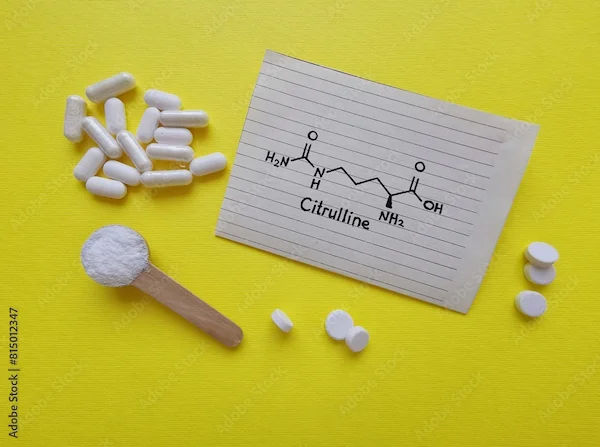How To Increase Nitric Oxide In Body?
Explore natural ways to boost nitric oxide levels in the body through diet, exercise, and lifestyle habits to support heart health, circulation, and overall wellness.

Written by Dr.Sonia Bhatt
Last updated on 3rd Jul, 2025

Introduction
Nitric oxide (NO) is a tiny molecule with a big role in your health. It helps your blood vessels relax, improves circulation, and supports heart health, immunity, and even exercise performance. If you’re looking for ways to naturally boost nitric oxide levels in your body, you’re in the right place! This article will explain why nitric oxide is important, how to increase it, and simple lifestyle changes that can make a difference.
Why Is Nitric Oxide Important?
Nitric oxide acts as a signalling molecule in your body, helping your blood vessels widen (vasodilation). This improves blood flow, lowers blood pressure, and ensures oxygen and nutrients reach every part of your body efficiently. Benefits of healthy nitric oxide levels include:
Better heart health: Reduces the risk of high blood pressure and heart disease.
Improved exercise performance: Enhances stamina and muscle recovery.
Stronger immunity: Helps fight infections.
Brain function support: Promotes healthy blood flow to the brain.
Erectile function: Supports blood circulation, which is vital for sexual health.
As we age, nitric oxide production naturally declines, which is why maintaining optimal levels is crucial for long-term health.
Consult Top General Physician
How to Increase Nitric Oxide Naturally?
Ways to increase nitric oxide naturally include:
1. Eat Nitrate-Rich Foods
Your body converts nitrates from food into nitric oxide. Some of the best nitrate-rich foods include:
Leafy greens: Spinach, arugula, kale, and lettuce.
Beetroot: One of the richest sources; drinking beetroot juice can significantly boost NO levels.
Celery & Carrots: Great for snacking and adding to meals.
Pomegranate: Contains antioxidants that help preserve nitric oxide.
2. Increase Antioxidant Intake
Nitric oxide breaks down quickly in the bloodstream, but antioxidants help stabilize it. Foods high in antioxidants include:
Vitamin C: Citrus fruits, bell peppers, strawberries.
Vitamin E: Nuts, seeds, spinach.
Polyphenols: Dark chocolate, berries, green tea.
3. Exercise Regularly
Physical activity stimulates nitric oxide production by improving blood flow. Even moderate exercises like walking, cycling, or yoga can help. High-intensity workouts provide an even bigger boost.
4. Get Enough Sunlight or Vitamin D
Sunlight exposure helps your skin produce nitric oxide. If you don’t get enough sun, consider vitamin D supplements after consulting your doctor.
5. Limit Mouthwash Overuse
Some mouthwashes kill beneficial bacteria in your mouth that help convert nitrates into nitric oxide. If you use mouthwash frequently, try reducing its use or opt for alcohol-free versions.
6. Try Supplements (If Needed)
Certain supplements can support nitric oxide production, such as:
L-arginine: An amino acid that boosts NO.
L-citrulline: Converts into L-arginine in the body, enhancing NO levels.
Beetroot powder: A convenient way to get nitrates.
Always consult a doctor before starting any supplements.
Lifestyle Changes to Support Nitric Oxide
Some of the lifestyle changes to support nitric oxide includes:
Quit smoking: Smoking damages blood vessels and reduces nitric oxide.
Manage stress: Chronic stress lowers NO levels; try meditation or deep breathing.
Stay hydrated: Proper hydration supports blood flow and NO production.
Get good sleep: Poor sleep can negatively affect nitric oxide levels.
When to See a Doctor?
If you experience symptoms like persistent fatigue, high blood pressure, or poor circulation, it may be worth checking your nitric oxide levels. A doctor can guide you on the best approach, including dietary changes or supplements.
Conclusion
Increasing nitric oxide levels naturally can have a profound impact on cardiovascular health, circulation, and overall energy levels. Simple lifestyle changes such as regular exercise, consuming nitrate-rich foods like leafy greens and beets, staying hydrated, and managing stress can significantly enhance your body’s nitric oxide production. Supplements may also offer additional support when needed. By incorporating these habits into your daily routine, you can improve your health and vitality in a safe and sustainable way.
Consult Top General Physician
Consult Top General Physician

Dr. Mohammed Kamran
General Practitioner
5 Years • MBBS, FIDM
Nashik
Apollo 24|7 Clinic - Maharashtra, Nashik

Dr. Vasanthasree Nair
General Practitioner
15 Years • MBBS
Angamaly
Apollo 24|7 Clinic - Kerala, Angamaly
(425+ Patients)

Dr D M Karthik
General Practitioner
4 Years • MBBS, Fellowship in Diabetes Mellitus, Advance certificate in Diabetes Mellitus, Derma Nutrition Certification
Visakhapatnam
Apollo 24|7 Clinic - Andhra Pradesh, Visakhapatnam

Dr. Siri Nallapu
General Practitioner
5 Years • MBBS
Hyderabad
Apollo 24|7 Clinic, Hyderabad

Dr Divya Lekha Gunta
General Practitioner
10 Years • MBBS, MD (Pathology)
Visakhapatnam
Apollo 24|7 Clinic - Andhra Pradesh, Visakhapatnam
Consult Top General Physician

Dr. Mohammed Kamran
General Practitioner
5 Years • MBBS, FIDM
Nashik
Apollo 24|7 Clinic - Maharashtra, Nashik

Dr. Vasanthasree Nair
General Practitioner
15 Years • MBBS
Angamaly
Apollo 24|7 Clinic - Kerala, Angamaly
(425+ Patients)

Dr D M Karthik
General Practitioner
4 Years • MBBS, Fellowship in Diabetes Mellitus, Advance certificate in Diabetes Mellitus, Derma Nutrition Certification
Visakhapatnam
Apollo 24|7 Clinic - Andhra Pradesh, Visakhapatnam

Dr. Siri Nallapu
General Practitioner
5 Years • MBBS
Hyderabad
Apollo 24|7 Clinic, Hyderabad

Dr Divya Lekha Gunta
General Practitioner
10 Years • MBBS, MD (Pathology)
Visakhapatnam
Apollo 24|7 Clinic - Andhra Pradesh, Visakhapatnam

